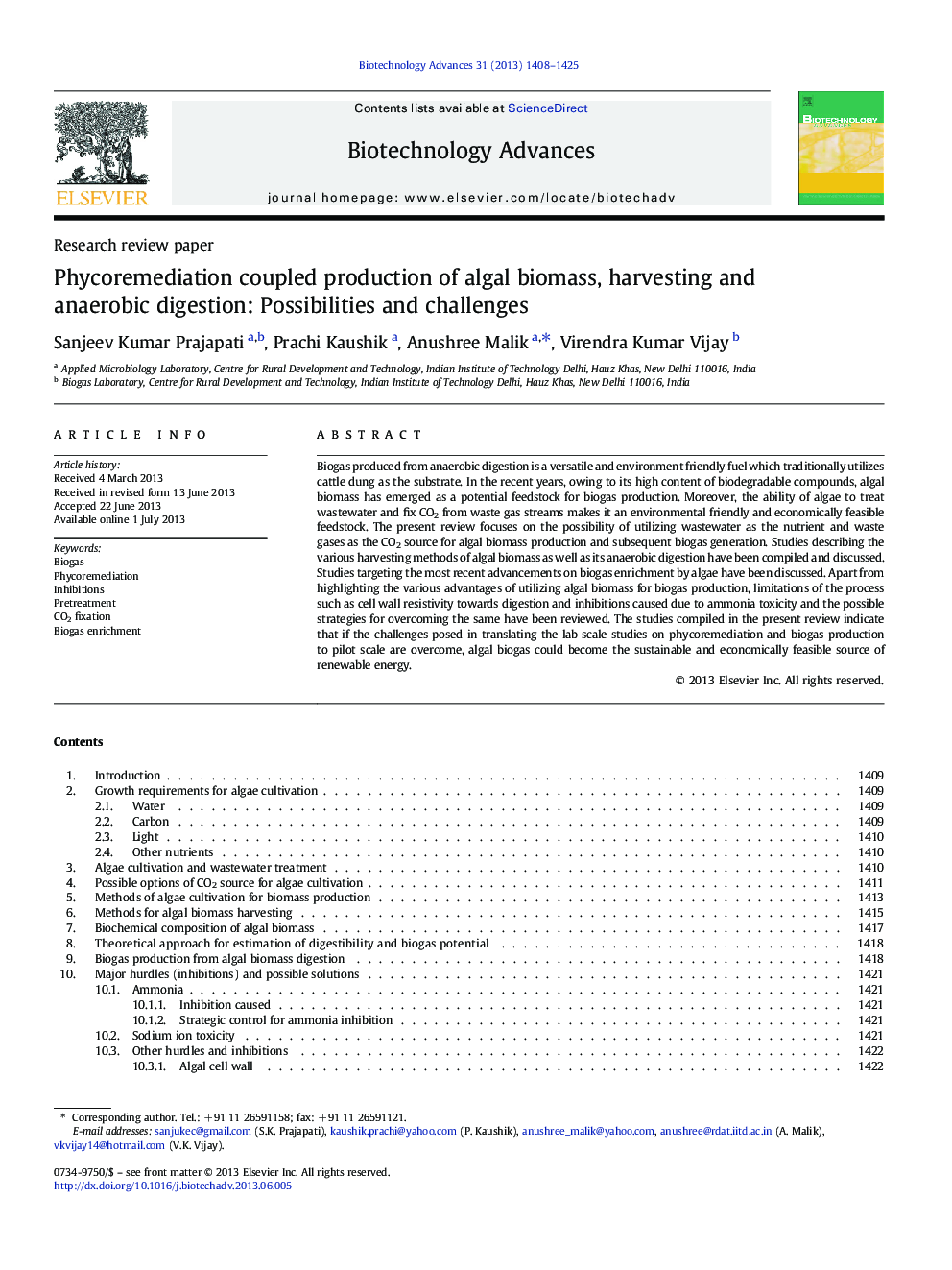| Article ID | Journal | Published Year | Pages | File Type |
|---|---|---|---|---|
| 10231568 | Biotechnology Advances | 2013 | 18 Pages |
Abstract
Biogas produced from anaerobic digestion is a versatile and environment friendly fuel which traditionally utilizes cattle dung as the substrate. In the recent years, owing to its high content of biodegradable compounds, algal biomass has emerged as a potential feedstock for biogas production. Moreover, the ability of algae to treat wastewater and fix CO2 from waste gas streams makes it an environmental friendly and economically feasible feedstock. The present review focuses on the possibility of utilizing wastewater as the nutrient and waste gases as the CO2 source for algal biomass production and subsequent biogas generation. Studies describing the various harvesting methods of algal biomass as well as its anaerobic digestion have been compiled and discussed. Studies targeting the most recent advancements on biogas enrichment by algae have been discussed. Apart from highlighting the various advantages of utilizing algal biomass for biogas production, limitations of the process such as cell wall resistivity towards digestion and inhibitions caused due to ammonia toxicity and the possible strategies for overcoming the same have been reviewed. The studies compiled in the present review indicate that if the challenges posed in translating the lab scale studies on phycoremediation and biogas production to pilot scale are overcome, algal biogas could become the sustainable and economically feasible source of renewable energy.
Related Topics
Physical Sciences and Engineering
Chemical Engineering
Bioengineering
Authors
Sanjeev Kumar Prajapati, Prachi Kaushik, Anushree Malik, Virendra Kumar Vijay,
